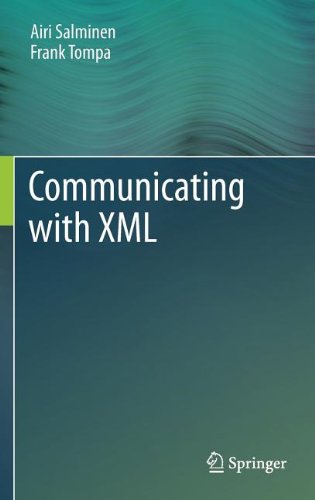

Most ebook files are in PDF format, so you can easily read them using various software such as Foxit Reader or directly on the Google Chrome browser.
Some ebook files are released by publishers in other formats such as .awz, .mobi, .epub, .fb2, etc. You may need to install specific software to read these formats on mobile/PC, such as Calibre.
Please read the tutorial at this link: https://ebookbell.com/faq
We offer FREE conversion to the popular formats you request; however, this may take some time. Therefore, right after payment, please email us, and we will try to provide the service as quickly as possible.
For some exceptional file formats or broken links (if any), please refrain from opening any disputes. Instead, email us first, and we will try to assist within a maximum of 6 hours.
EbookBell Team

4.1
20 reviewsThis book provides extensive insight into the possibilities and challenges of XML in building new information management solutions in networked organizations. After a brief introduction to Web communication features and XML fundamentals, the book examines the benefits of adopting XML and illustrates various types of XML use: XML in document management; XML for data-centric and multimedia components; XML as a format for metadata, including metadata for the Semantic Web; and XML in support of data interchange between software applications and among organizations. The challenges of adopting XML in large-scale information management are also discussed. In addition, applications across a broad spectrum are examined and numerous case studies pertaining to the adoption of XML are presented. The book is particularly suitable for courses offered in Information Studies, Information Systems, or Information Technology. It also serves as an excellent practical guide for professionals in information management and provides important support material for courses in Computer Science and in Business.